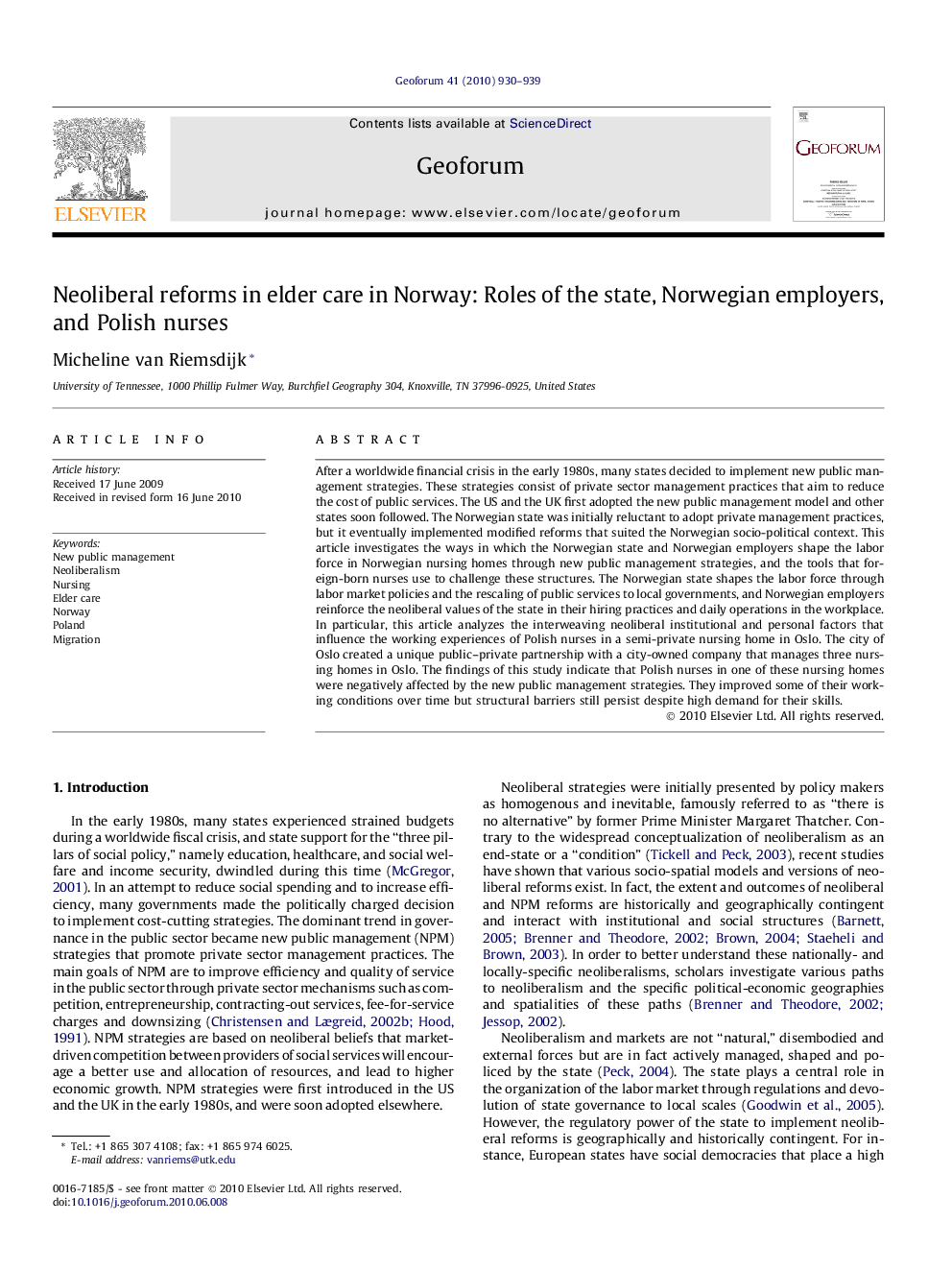| Article ID | Journal | Published Year | Pages | File Type |
|---|---|---|---|---|
| 5074598 | Geoforum | 2010 | 10 Pages |
Abstract
After a worldwide financial crisis in the early 1980s, many states decided to implement new public management strategies. These strategies consist of private sector management practices that aim to reduce the cost of public services. The US and the UK first adopted the new public management model and other states soon followed. The Norwegian state was initially reluctant to adopt private management practices, but it eventually implemented modified reforms that suited the Norwegian socio-political context. This article investigates the ways in which the Norwegian state and Norwegian employers shape the labor force in Norwegian nursing homes through new public management strategies, and the tools that foreign-born nurses use to challenge these structures. The Norwegian state shapes the labor force through labor market policies and the rescaling of public services to local governments, and Norwegian employers reinforce the neoliberal values of the state in their hiring practices and daily operations in the workplace. In particular, this article analyzes the interweaving neoliberal institutional and personal factors that influence the working experiences of Polish nurses in a semi-private nursing home in Oslo. The city of Oslo created a unique public-private partnership with a city-owned company that manages three nursing homes in Oslo. The findings of this study indicate that Polish nurses in one of these nursing homes were negatively affected by the new public management strategies. They improved some of their working conditions over time but structural barriers still persist despite high demand for their skills.
Related Topics
Social Sciences and Humanities
Economics, Econometrics and Finance
Economics and Econometrics
Authors
Micheline van Riemsdijk,
